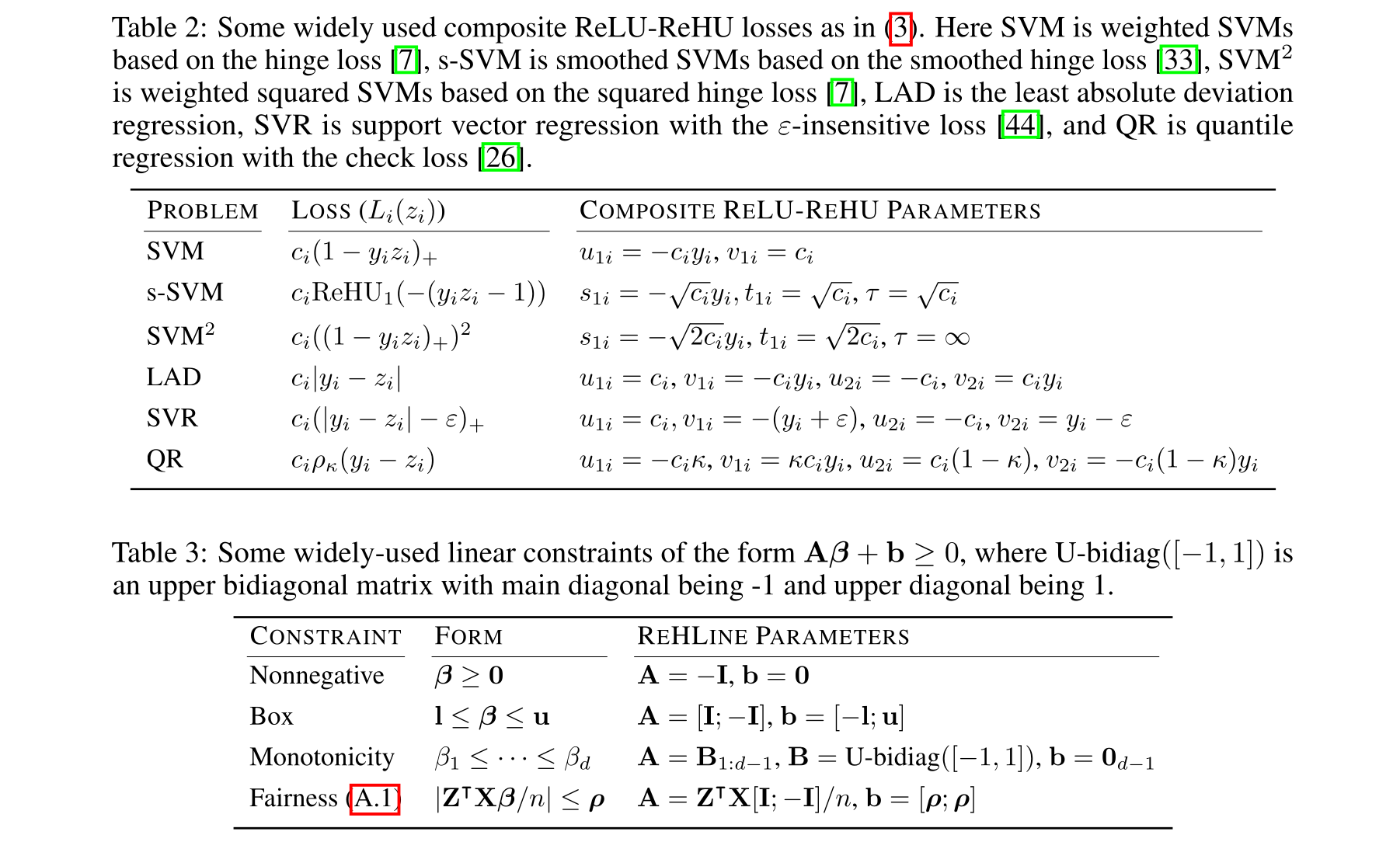ReHLine is designed to be a computationally efficient and practically useful software package for large-scale empirical risk minimization (ERM) problems.
The ReHLine solver has four appealing "linear properties":
- It applies to any convex piecewise linear-quadratic loss function, including the hinge loss, the check loss, the Huber loss, etc.
- In addition, it supports linear equality and inequality constraints on the parameter vector.
- The optimization algorithm has a provable linear convergence rate.
- The per-iteration computational complexity is linear in the sample size.
This repository, ReHLine-cpp, provides efficient C++ code that implements the core algorithm of the ReHLine solver. It is also the foundation of the Python and R interfaces to ReHLine.
ReHLine-cpp is a tiny and header-only library aiming to be fast and easy to use. The whole library is a single header file rehline.h, and its only dependency is the Eigen library, which is also header-only.
ReHLine is designed to address the empirical regularized ReLU-ReHU minimization problem, named ReHLine optimization, of the following form:
where
This formulation has a wide range of applications spanning various fields, including statistics, machine learning, computational biology, and social studies. Some popular examples include SVMs with fairness constraints (FairSVM), elastic net regularized quantile regression (ElasticQR), and ridge regularized Huber minimization (RidgeHuber).
ReHLine-cpp is open source under the MIT license.

